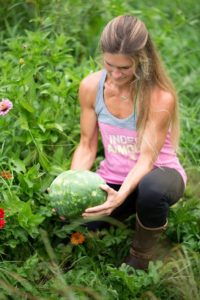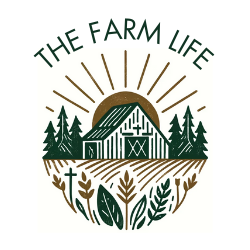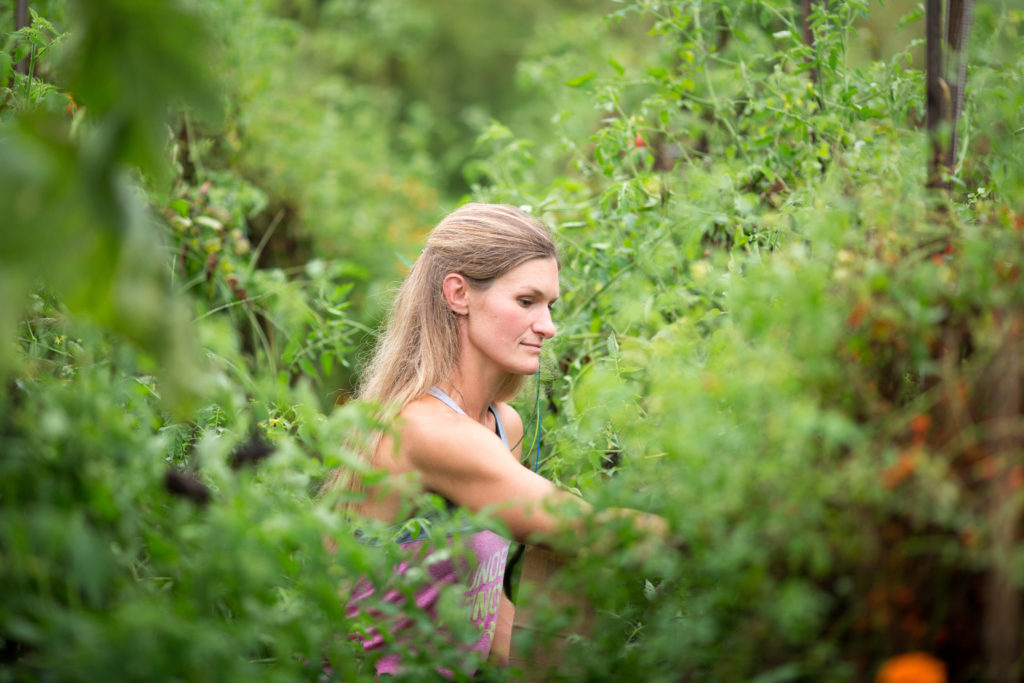Founder Essays, Functional Medicine
What is Functional Medicine Farming?
Why did I transition into functional medicine farming? And what the heck does functional medicine farming even mean? I am a farmer, right? How in the world is that connected or related to functional medicine?
Food is everything. The way we manage our lifestyle is everything. Our culture needs to shift back to a preventative lifestyle and save ourselves from the chronic issues engulfing us.
“I work in healthcare. I am a farmer.”
Farming ties intimately into functional medicine. Permaculture farming, that is. Conventional farming is the antithesis to health. I did not see this at first, but after a period of time deeply interwoven with my plants combined with detailed studies on food science (in order to pick out the most nutrient-dense varieties), I saw the light! I witnessed the connection. The connection slapped me in the face one day outside while nurturing a plant’s immune system with fermented compost tea. It was a big “aha” for me. I realized that I was boosting my sweet little plant’s immune system just as I boost my own sweet little child’s immune system. Not only was I performing the same act, but I was using the same tool! Ferments. Well, that’s one of my tools at least. It was that day that I realized my plants deserve that same treatment, and they will in return feed me with powerful phytonutrients. It is powerful to be able to actually understand why a list like the “dirty dozen” exists because I grow many of those plants and endure the hardships associated with not spraying chemicals. In some ways, I know too much, and I easily become saddened by the farming culture at-large. But, what’s the intimate tie-in that really came to me after spending so much time with plants? We are not really much different from them.
- A plant uses glucose (via photosynthesis) to make its entire structure and as its energy source. Sound familiar (minus the photosynthesis part)? Plants develop defense mechanisms to keep their bodies protected and their immune systems strong. Granted they do this mainly because they cannot move and alter their environment. Even so these are still mechanisms similar to that of humans.
- A plant’s common biology pours over into humans. What we really have is nature’s ultimate stress management tool. When I harvest a plant, what do I do? I cut it or pick it. The plant then goes into hyper-drive to produce protective chemicals to protect itself from oxidative damage or DNA damage in high hopes of survival. So, if we eat the correct variety of a plant, meaning most nutritious, and we eat it at an optimal time when the plant’s released defense mechanisms are at its max, we insert large amounts of phytonutrients into our bodies. Our tissue reacts the same way to the defense mechanisms released by plants. What does that mean? If a plant releases a protective agent, and we then eat the plant, we benefit from that same protective agent (anti-inflammatory agent, for example). This is backed by thousands of peer-reviewed journals and thousands of years of traditional uses that carried us through the times before chronic inflammation and disease. It’s eye opening and really fascinating to study! My favorite book by far on this topic is Eating on the Wild Side, by Jo Robinson. It’s an excellent book that merges those scientific studies into one book.
- Our biology and plant biology are very similar in the sense that we require a very narrow physiological condition in which to operate (homeostasis). We keep a narrow pH in our blood. We have a narrow range of temperature that is classified as normal. So our cells cannot handle variations off of a few degrees. A plant can handle a lot more variations because it has many cellular helpers to handle those stresses. And the protective chemicals released as a reaction to those stresses provide nutrients to our bodies. For example, the pigment anthocyanin created in many plants provides profound antioxidant benefits in our bodies. When we look at what plants do in order to survive, we quickly realize that those plants have similar functions to humans, and we can greatly benefit from that.
I would not have understood these facets nearly as well had I not become a biodynamic farmer. I am committed to honoring nature and her cycles, and now I get it! Thankfully during the pursuit of self-based happiness (to become a farmer), I discovered a fire within me to help others. I don’t ask much from others, but today I ask for your willingness to take care of your body, mind, and most importantly, your spirit.
~Farmer Ashley


Ashley,
You never cease to amaze me with your forward and backwards thinking (I mean that in only the best of ways), envisioning life as you would like it to be, and surrounding yourself with like minded team members, all the while gently pulling from the wisdom of the ancients.
I wish you only the best in your endeavors.
I was wondering which brand of essential oils do you use?
Hi Kalah, pls email me at howdy@thefarmlife.com, and I will share. 🙂 ~Farmer Ashley
Hi Ashley, do you still do the Friday dinners? Please email me. 🙂